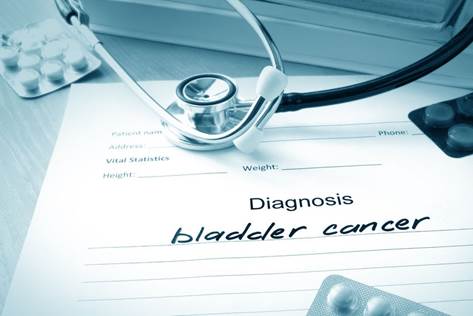
4. Pioglitazone strongly associated with increased |

![]() Pioglitazone was associated with an increased risk of bladder cancer in a recent study, published on March 30 by the British Medical Journal,but rosiglitazone, also a member of the thiazolidinedione class, was not. Researchers used a base cohort of 145,806 patients (56.8% men; mean age 63.7) in the United Kingdom Clinical Practice Research Datalink.
Pioglitazone was associated with an increased risk of bladder cancer in a recent study, published on March 30 by the British Medical Journal,but rosiglitazone, also a member of the thiazolidinedione class, was not. Researchers used a base cohort of 145,806 patients (56.8% men; mean age 63.7) in the United Kingdom Clinical Practice Research Datalink.
![]() Researchers followed all patients from the year after cohort entry until a first-ever diagnosis of bladder cancer, death from any cause, end of registration with the general practice, or end of the study period (July 31, 2014), whichever occurred first, for a mean of 4.7 years, generating 689,616 patient-years of follow-up. A total of 622 patients received a bladder cancer diagnosis during follow-up, creating a crude incidence rate of 90.2 (95% CI, 83.2 to 97.6) per 100,000 patient-years.
Researchers followed all patients from the year after cohort entry until a first-ever diagnosis of bladder cancer, death from any cause, end of registration with the general practice, or end of the study period (July 31, 2014), whichever occurred first, for a mean of 4.7 years, generating 689,616 patient-years of follow-up. A total of 622 patients received a bladder cancer diagnosis during follow-up, creating a crude incidence rate of 90.2 (95% CI, 83.2 to 97.6) per 100,000 patient-years.
![]() Compared with no thiazolidinedione use, pioglitazone use was associated with an increased risk of incident bladder cancer (121.0 versus 88.9 per 100,000 patient-years; adjusted hazard ratio [HR], 1.63; 95% CI, 1.22 to 2.19). Conversely, rosiglitazone use was not associated with an increased risk of bladder cancer (86.2 vs. 88.9 per 100,000 patient-years; adjusted HR, 1.10; 95% CI, 0.83 to 1.47) compared with no thiazolidinedione use.
Compared with no thiazolidinedione use, pioglitazone use was associated with an increased risk of incident bladder cancer (121.0 versus 88.9 per 100,000 patient-years; adjusted hazard ratio [HR], 1.63; 95% CI, 1.22 to 2.19). Conversely, rosiglitazone use was not associated with an increased risk of bladder cancer (86.2 vs. 88.9 per 100,000 patient-years; adjusted HR, 1.10; 95% CI, 0.83 to 1.47) compared with no thiazolidinedione use.
![]() Researchers found both duration- and dose-response relationships between pioglitazone treatment and incident bladder cancer (P<0.01). Use of the drug for more than 2 years was associated with increased bladder cancer risk. These findings remained consistent in several sensitivity analyses.
Researchers found both duration- and dose-response relationships between pioglitazone treatment and incident bladder cancer (P<0.01). Use of the drug for more than 2 years was associated with increased bladder cancer risk. These findings remained consistent in several sensitivity analyses.
![]() The results of this study pose the question of whether the increased likelihood of bladder cancer, which is rare, justifies withholding pioglitazone from adults with type 2 diabetes, according to an accompanying editorial. The drug has been associated with benefits, such as stroke prevention, and harms, such as weight gain, heart failure, and bone fractures, the editorialist noted. "This is the kind of consideration that complicates the treatment of diabetes and demands reliable evidence of comparative effectiveness and safety," the editorialist wrote.
The results of this study pose the question of whether the increased likelihood of bladder cancer, which is rare, justifies withholding pioglitazone from adults with type 2 diabetes, according to an accompanying editorial. The drug has been associated with benefits, such as stroke prevention, and harms, such as weight gain, heart failure, and bone fractures, the editorialist noted. "This is the kind of consideration that complicates the treatment of diabetes and demands reliable evidence of comparative effectiveness and safety," the editorialist wrote.
For enquiries info@jothydev.net.
Please visit: jothydev.net | research.jothydev.com | diabscreenkerala.net | jothydev.com/newsletter
